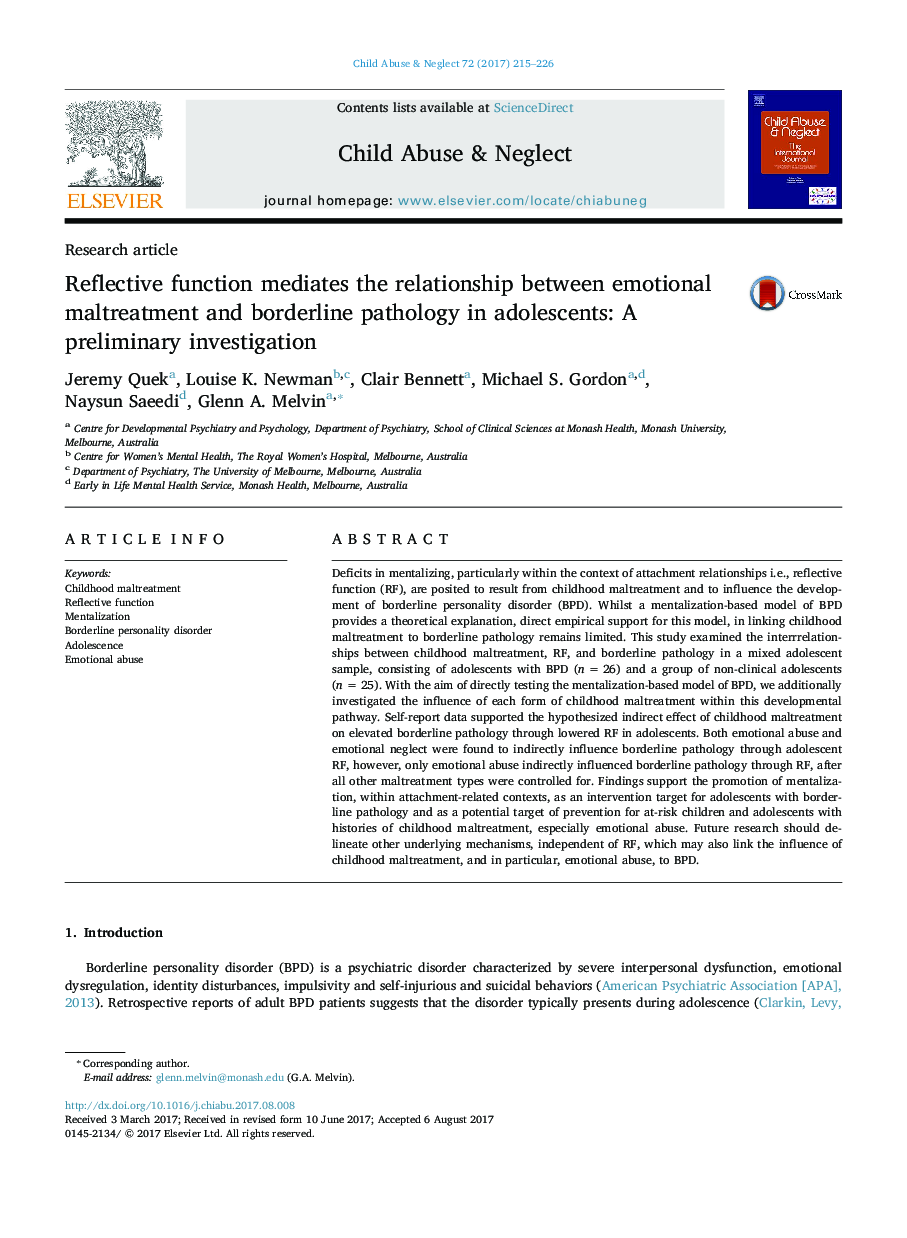| Article ID | Journal | Published Year | Pages | File Type |
|---|---|---|---|---|
| 4935913 | Child Abuse & Neglect | 2017 | 12 Pages |
Abstract
Deficits in mentalizing, particularly within the context of attachment relationships i.e., reflective function (RF), are posited to result from childhood maltreatment and to influence the development of borderline personality disorder (BPD). Whilst a mentalization-based model of BPD provides a theoretical explanation, direct empirical support for this model, in linking childhood maltreatment to borderline pathology remains limited. This study examined the interrrelationships between childhood maltreatment, RF, and borderline pathology in a mixed adolescent sample, consisting of adolescents with BPD (n = 26) and a group of non-clinical adolescents (n = 25). With the aim of directly testing the mentalization-based model of BPD, we additionally investigated the influence of each form of childhood maltreatment within this developmental pathway. Self-report data supported the hypothesized indirect effect of childhood maltreatment on elevated borderline pathology through lowered RF in adolescents. Both emotional abuse and emotional neglect were found to indirectly influence borderline pathology through adolescent RF, however, only emotional abuse indirectly influenced borderline pathology through RF, after all other maltreatment types were controlled for. Findings support the promotion of mentalization, within attachment-related contexts, as an intervention target for adolescents with borderline pathology and as a potential target of prevention for at-risk children and adolescents with histories of childhood maltreatment, especially emotional abuse. Future research should delineate other underlying mechanisms, independent of RF, which may also link the influence of childhood maltreatment, and in particular, emotional abuse, to BPD.
Keywords
Related Topics
Health Sciences
Medicine and Dentistry
Perinatology, Pediatrics and Child Health
Authors
Jeremy Quek, Louise K. Newman, Clair Bennett, Michael S. Gordon, Naysun Saeedi, Glenn A. Melvin,
